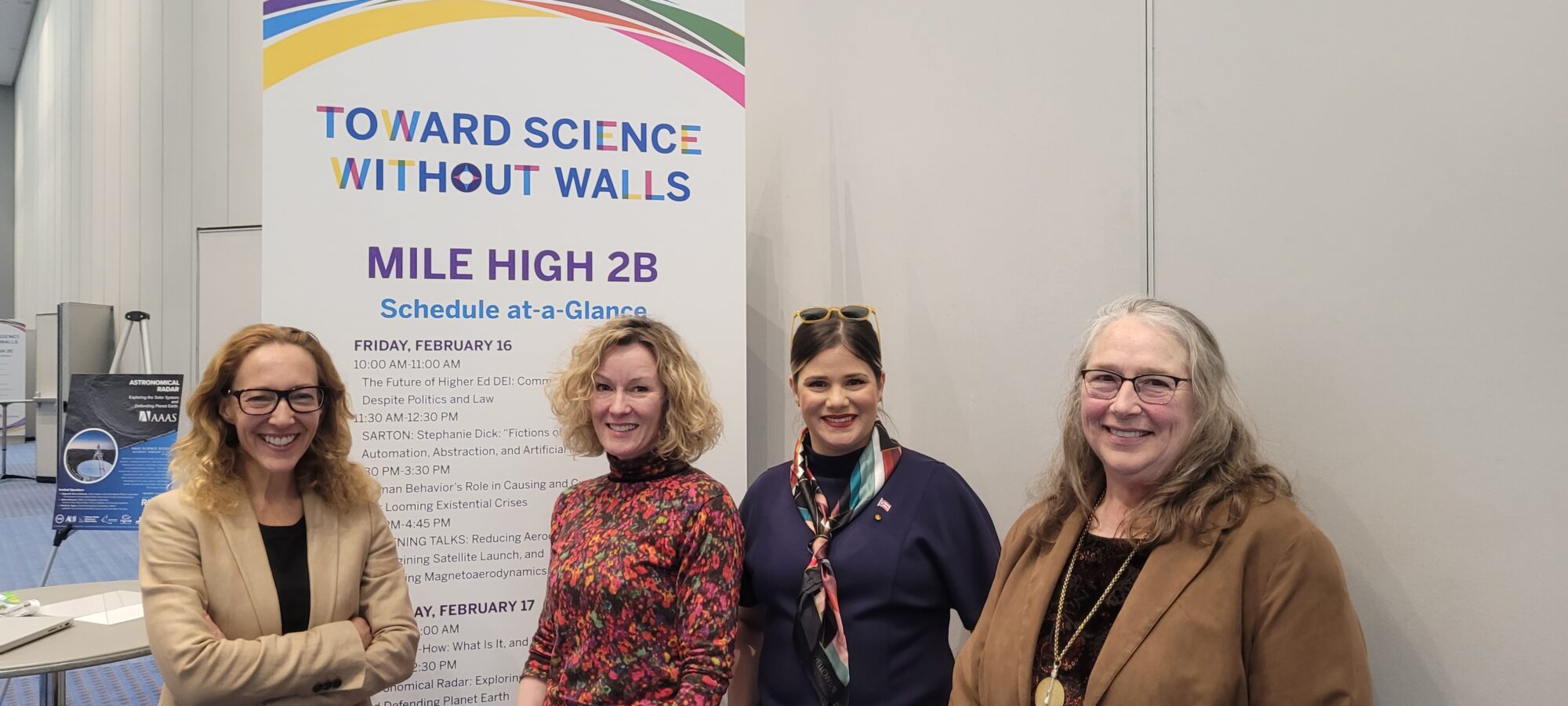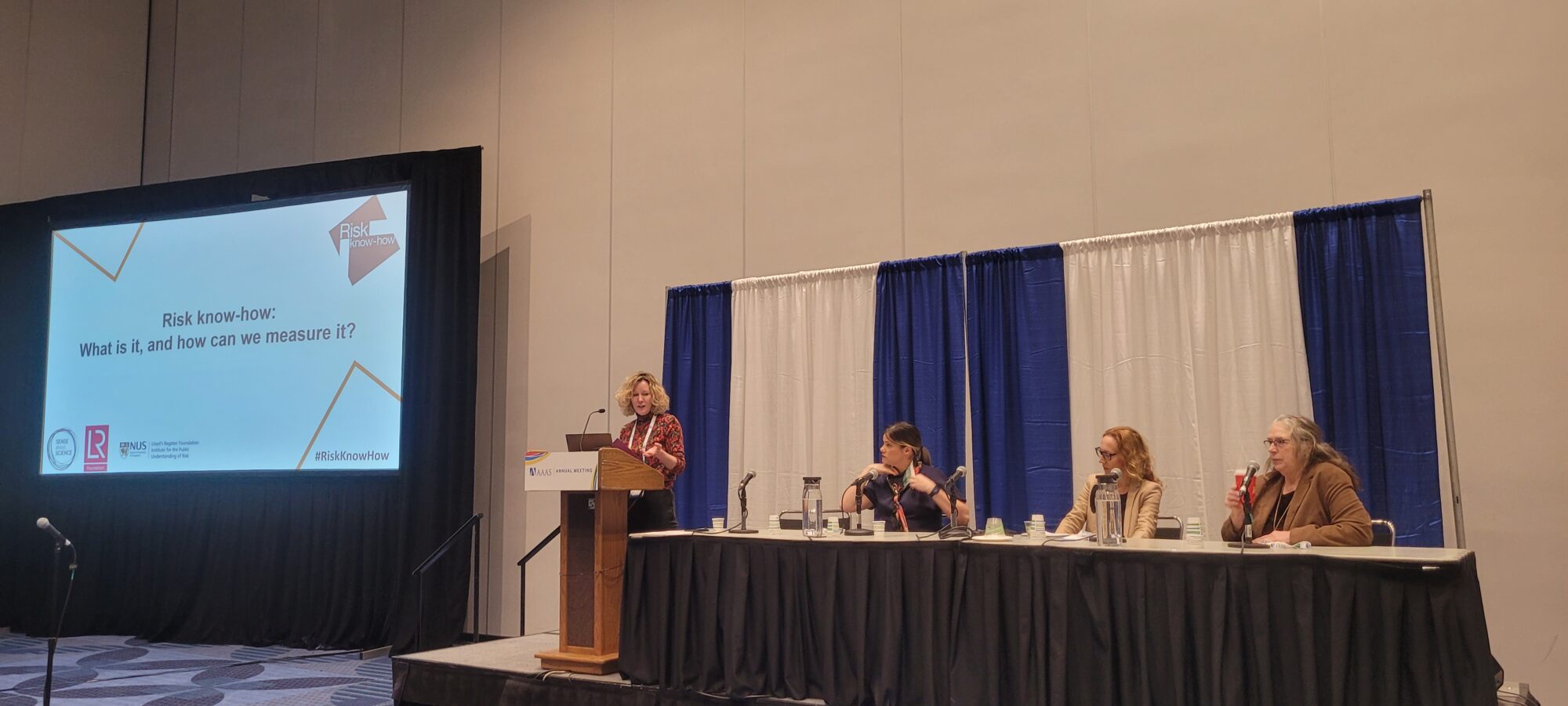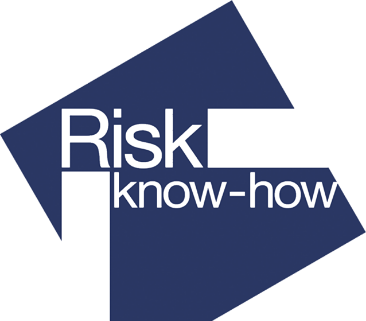Panel at AAAS meeting discussed Risk know-how and how to assess it
Posted 18th February 2024
During a session today at the AAAS Annual Meeting, in Denver, USA, a panel looked at ways to assess community risk know-how internationally, and the scope for improvements in national and regional warning systems. Are hazard warnings such as global weather changes more accessible to some communities than others? Should more resource be directed to calculating risk information in different contexts so that people can act on it?
The panel was moderated by Tracey Brown, director of Sense About Science, and included Kathy Ensor from Rice University, Mónica Feliú-Mójer from Ciencia Puerto Rico, and Olivia Jensen from the LRF Institute for the Public Understanding of Risk.

“We are pulling people together from all over the world, to figure out a scale or key elements in a community that help it to assess warnings and reassurances and the net value of protective measures. That can be a matter of life and limb, of course, but having usable information is also a question of fairness. It should be a concern to every agency – whether it is urging action or prevention, providing information or sharing assessments – to consider whether the information is meaningful to people.”
Tracey Brown OBE, Director of Sense About Science

“Taking collective decisions under uncertainty requires communities to understand complex trade-offs between risks, the costs and benefits of possible protective actions and how those costs are going to be borne by community members. To do this, communities may need support not just to interpret probabilistic information, but to design and implement decision-making processes that take account of all the aspects of risk that go beyond the numbers.”
Olivia Jensen, Deputy Director of Lloyd’s Register Foundation Institute for the Public Understanding of Risk (IPUR)
